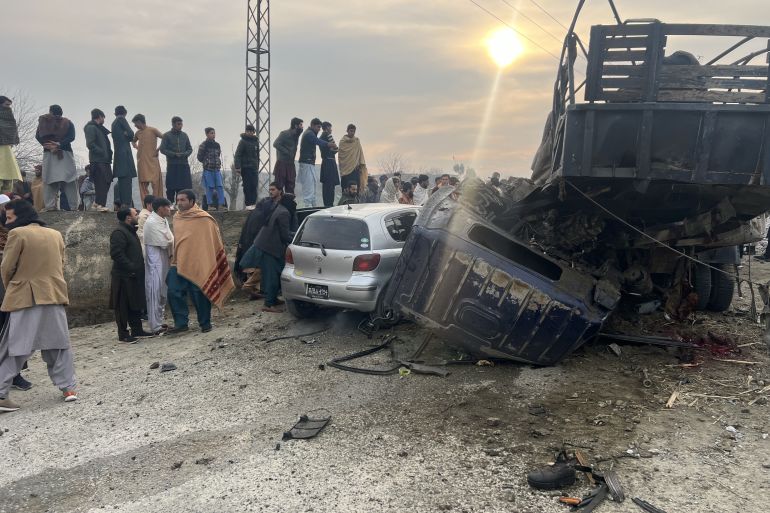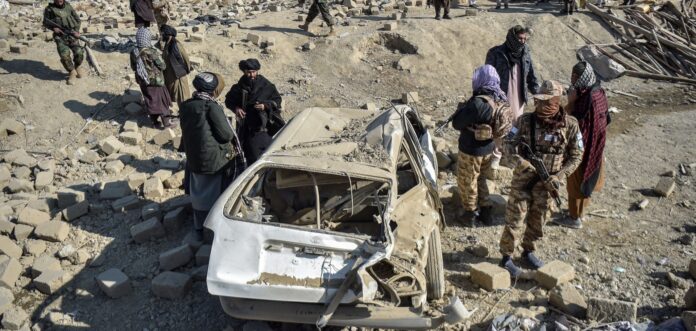Islamabad Accused of Violating Afghan Sovereignty
In a sharp escalation of tensions, Afghanistan’s Taliban-led government has accused Pakistan of a direct violation of Kabul’s sovereign territory. According to Afghanistan’s defence authorities, what took place was “an unprecedented, violent and provocative act.” The accusation follows two loud blasts heard late Thursday evening over the capital.
Explosions Heard in Kabul, Markets Hit Across the Border
The Taliban’s Defence Ministry also claimed that Pakistan bombed a civilian market in Paktika, a border province in Afghanistan’s southeast. Local residents told the BBC’s Afghan service that multiple shops were damaged or destroyed in the attack.
Pakistan, however, has neither accepted nor denied the operation. No official confirmation has come from Islamabad, leaving the exact nature of the incident unverified.
Pakistani Military Leadership Defends Possible Action
In Peshawar on Friday, Pakistan’s senior military officials offered a strong response. General Ahmed Sharif Chaudhry asserted that Afghanistan was being used by militants—specifically the Pakistan Taliban (TTP)—as a staging ground for attacks against Pakistani civilians and security forces.
“To safeguard Pakistani lives and properties, whatever measures are needed will be taken,” he declared. Pakistan has long maintained accusations that the Afghan Taliban tolerate or support TTP operations from within Afghan territory—a claim the Taliban government repeatedly denies.
Speculation Over Targeted Attack on TTP Leader

Much speculation has surrounded Friday’s explosions in Kabul. Rumors circulated that the blasts may have been an attempt to eliminate TTP leader Noor Wali Mehsud. In response, the TTP released an unverified voice recording of Mehsud, asserting that he remains alive.
On the ground, it remained difficult to corroborate reports. BBC Afghan’s local team inspected the area near the alleged blasts and found no visible signs of damage, although authorities had set up heavy Taliban presence and numerous mobile checkpoints.
Taliban Threatens Consequences as Foreign Minister Seeks Dialogue
In a statement, Afghanistan’s Defence Ministry warned that if the situation intensifies further, “the consequences will be attributable to the Pakistani army.” Yet, while signalling firmness, the Taliban’s foreign minister struck a more diplomatic tone. From Delhi—where he is currently visiting—Amir Khan Muttaqi called for restraint.
“Pakistan should not repeat this mistake,” he said to a select group of Indian media representatives. “Our issues can be resolved by negotiation, not by war.”
Rising Tensions and the Question of Accountability

This incident underscores deep and longstanding distrust between Islamabad and Kabul. Pakistan’s security establishment routinely accuses the Afghan Taliban of harboring or tolerating militant networks such as the TTP. Conversely, the Taliban government has consistently dismissed these claims, arguing that it does not allow its territory to be used for cross-border attacks.
The lack of confirmation from Pakistan, combined with conflicting reports on the ground, has left questions about the true nature and intent behind Thursday night’s blasts. Whether this marks a new escalation or a miscalculated provocation, the diplomatic stakes are high.
Outlook: Dialogue or Confrontation?
The next few days will be critical. If Pakistan opts to respond militarily or overtly acknowledges involvement, Afghanistan may retaliate, either militarily or diplomatically. That scenario could further destabilize the volatile border region.
However, if both governments choose to engage in dialogue, there may be a path to deescalation—though deep mistrust will make progress difficult. In the meantime, the eyes of regional stakeholders, including India and Iran, may tighten on the developing situation in hopes of influencing outcomes.

